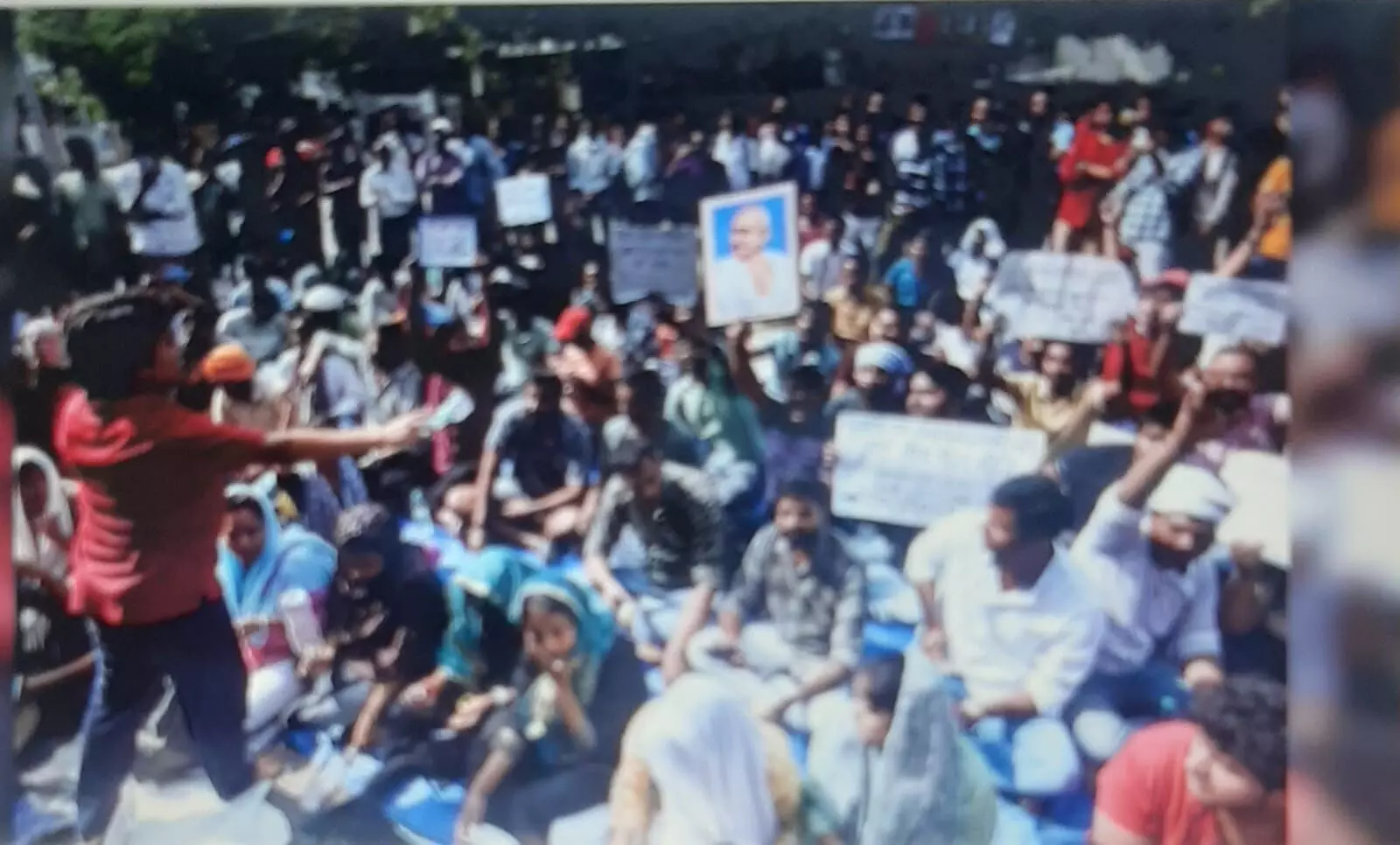UPPSC's Credibility in Crisis: Urgent Reforms Needed
The Public Service Commission's credibility has been eroded by repeated scandals and corruption. Urgent reforms are needed to restore public trust and ensure fair and transparent examinations.;

Key institutions like the Public Service Commission have long struggled to conduct competitive examinations with honesty and fairness. Instances of question paper leaks have repeatedly forced the cancellation of exams, and on many occasions, both the examination process and its results have been mired in controversy. This erosion of public trust in an institution as vital as the Public Service Commission is deeply alarming and should be a matter of grave concern for any government committed to upholding transparency and accountability.
Recently, thousands of aspirants staged demonstrations and surrounded the Uttar Pradesh Public Service Commission (UPPSC) headquarters in Prayagraj for several days, protesting changes in the PCS examination system. Initially, officials dismissed their demands, but after sustained pressure, the changes were revoked, and the previous system of conducting the examination for all candidates on a single day was reinstated. While it is reassuring that the government and UPPSC eventually respected public sentiment, it is troubling that institutions as critical as the Public Service Commission have repeatedly failed to conduct competitive examinations with integrity and fairness. In the past, several examinations have been marred by question paper leaks, cancellations, and controversies surrounding both the process and results. This erosion of public trust in an institution as vital as the Public Service Commission should be a matter of grave concern for any government.
The functioning of the State Public Service Commission has been problematic for years. Over the past decade, during the tenure of the previous government, an individual with a criminal history was appointed as the Chairman of the Uttar Pradesh Public Service Commission (UPPSC), despite lacking the requisite qualifications for the role. Under his leadership, numerous examinations conducted by the commission were tainted with suspicion, and allegations of bias against the chairman surfaced repeatedly. The situation deteriorated to the point where competitive aspirants took to the streets in protest. However, the government at the time remained indifferent. Eventually, the matter reached the judiciary, and the Allahabad High Court, after a thorough review of the evidence, intervened and removed the chairman.
Unfortunately, this was not an isolated incident. For decades, successive governments have treated appointments to the Public Service Commission as a prerogative to reward their supporters, appointing individuals with political connections rather than merit. This trend, which began in the 1970s, persists to this day, leaving the public to bear the consequences of these misdeeds.
Worse still, this malpractice is not confined to Uttar Pradesh but is prevalent across most states. In recent years, widespread corruption in many State Public Service Commissions has led to the imprisonment of several chairpersons and members. Such systemic failures highlight the urgent need for reforms to restore the credibility and integrity of these crucial institutions.
Corruption in the selection of candidates for public services is not confined to Public Service Commissions alone. Various commissions and institutions established by states for public service appointments have also been engulfed by corruption. A glaring example is the Vyapam scam in Madhya Pradesh, a scandal so vast that it claimed numerous lives and exposed how deeply this malpractice has infiltrated the system. Despite multiple investigations over the past decade, the primary culprits remain beyond the reach of the law, highlighting the persistent challenges in holding the powerful accountable and restoring faith in the country's recruitment processes.
Recently, The Indian Express published a front-page report exposing widespread irregularities, scams, and blatant misuse of power in numerous appointments made in the Uttar Pradesh Legislative Assembly and Legislative Council. The extent of the rot in the system, as detailed in the report, is enough to shock any ordinary citizen. The audacity with which senior officials flouted the law to manipulate the selection process is unimaginable.
The report highlighted a particularly striking case of a Principal Secretary, who, over decades, appointed several close relatives to key positions with blatant disregard for due process. Despite the gravity of these revelations, those in the highest positions of authority, sworn to uphold the Constitution, have remained unmoved, allowing the culprits to continue holding their posts.
In light of the seriousness of the issue, the Allahabad High Court ordered a CBI inquiry. However, as is often said, the reach of the corrupt appears to have outpaced the grasp of the law. The Supreme Court subsequently stayed the High Court's order, stalling the investigation into this blatant corruption. This development underscores the growing challenge of ensuring accountability and justice in the face of systemic abuse of power.
The pressing question remains: how long will the innocent public endure such injustice? The answer is both clear and straightforward—until the common people stop electing corrupt and inefficient leaders based on caste, religion, and money. It is crucial for citizens to realize that the very leaders perpetuating corruption and injustice are a product of their own choices.
For far too long, we have turned a blind eye to truth, falling prey to the lies and deceit of these leaders who manipulate us through divisive tactics and material incentives. This cycle of electing such individuals in the name of caste, religion, and influence must end.
It is time for all of us to open our eyes, reject these divisive factors, and prioritize integrity and competence when voting. Only by choosing honest and capable leaders can we hope to rid the country and its states of the scourge of corruption and the injustice it perpetuates. The power to bring about change lies firmly in the hands of the people.
(Vijay Shankar Pandey is former Secretary of the Government of India)

